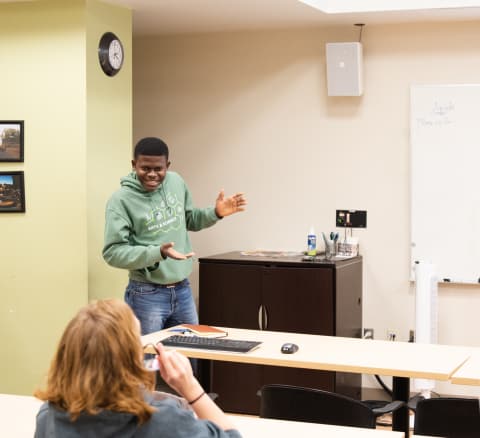The ratification of the University of Saskatchewan Areopagus Youth in September brings discussion groups to a different level using confrontations to discuss controversial topics. The group is planning an event in February 2019 that will engage participants in a critical discussion on university education.
The structure of USAY is inspired by the earliest known aristocratic council from Athens, Greece, called Areopagus, which was a discussion group with the goal of bringing understanding to the varying opinions that students have.
In addition to weekly meetings, the group is planning an event in February 2019 that will engage participants in a critical discussion on university education and varying issues surrounding it, including tuition prices and the operation of the administration.
Although the students held discussions throughout last year, they ratified as a group in September.
The idea for the February event came to Akinwande Akingbehin, a second-year arts and science student and co-founder of USAY, after watching a documentary about post-secondary education institutions in the summer.
This prompted him to initiate bigger campus discussions and encourage critical thought on these institutions.
“One of the documentaries I watched the most this summer was about university education… [I thought] How is it valuable? Why is tuition high? Do university administrators have to be paid so much? Why do we have the kind of grading system we have?” Akingbehin said.

Members of the U of S Aeropagus Youth club discuss topics at their meeting held in the ISAAC Training Room on Dec. 3, 2018.
Although the subject of the event questions the structure of universities, it is not a protest against post-secondary education, but instead, it aims to create a space for students to critically analyze their opinions on the topic.
“It’s not intended to be anti-establishment, because all of us in USAY, we are very passionate students… But there are some problems with the institution, obviously, and I think that it’s very, very important to address them,” Akingbehin said.
Frances Stoneham, a first-year law student and co-founder of USAY, says that it has been beneficial for her, especially when it comes to speaking up in class discussions.
“For me, it’s a space where you can bounce ideas off each other and hone your arguments. That’s really beneficial for me as a law student — to be able to argue things convincingly or realize where the flaws in my argument are,” Stoneham said.
The club delves into in-depth discussions on topics and world events where people have varying perspectives. Salma Kazmi, a second-year arts and science student and co-founder of the club, says that the table is open for ideas from many different viewpoints.
“We have talked about different subjects. We have talked about abortion [and] euthanasia. We were just talking about science and spirituality and feminism,” Kazmi said.
Other topics that they have discussed include artificial intelligence, gun control, sexual assault and American politics. Kazmi says that she likes their current theme, science and spirituality, because it is an important subject as it combines personal beliefs with university education.
“I personally have been enjoying this last topic… It’s really important because we are engaged [in] science research and studying science, and I think it’s pretty important to have a holistic view of [the university] where we are studying every day,” Kazmi said.
The purpose of the club is to create a free space for students to speak, and Akingbehin says that they have been lucky to have respectful members considering how controversial the subjects are.
“We never put any form of system in place to keep people down,” Akingbehin said. “We’ve just been lucky enough to have reasonable people, because if someone really provocative and vindictive comes, there’s nothing we can do because it is a free space.”
—
J.C. Balicanta Narag/ Outreach Director
Photo: Riley Deacon / Photo Editor
Leave a Reply